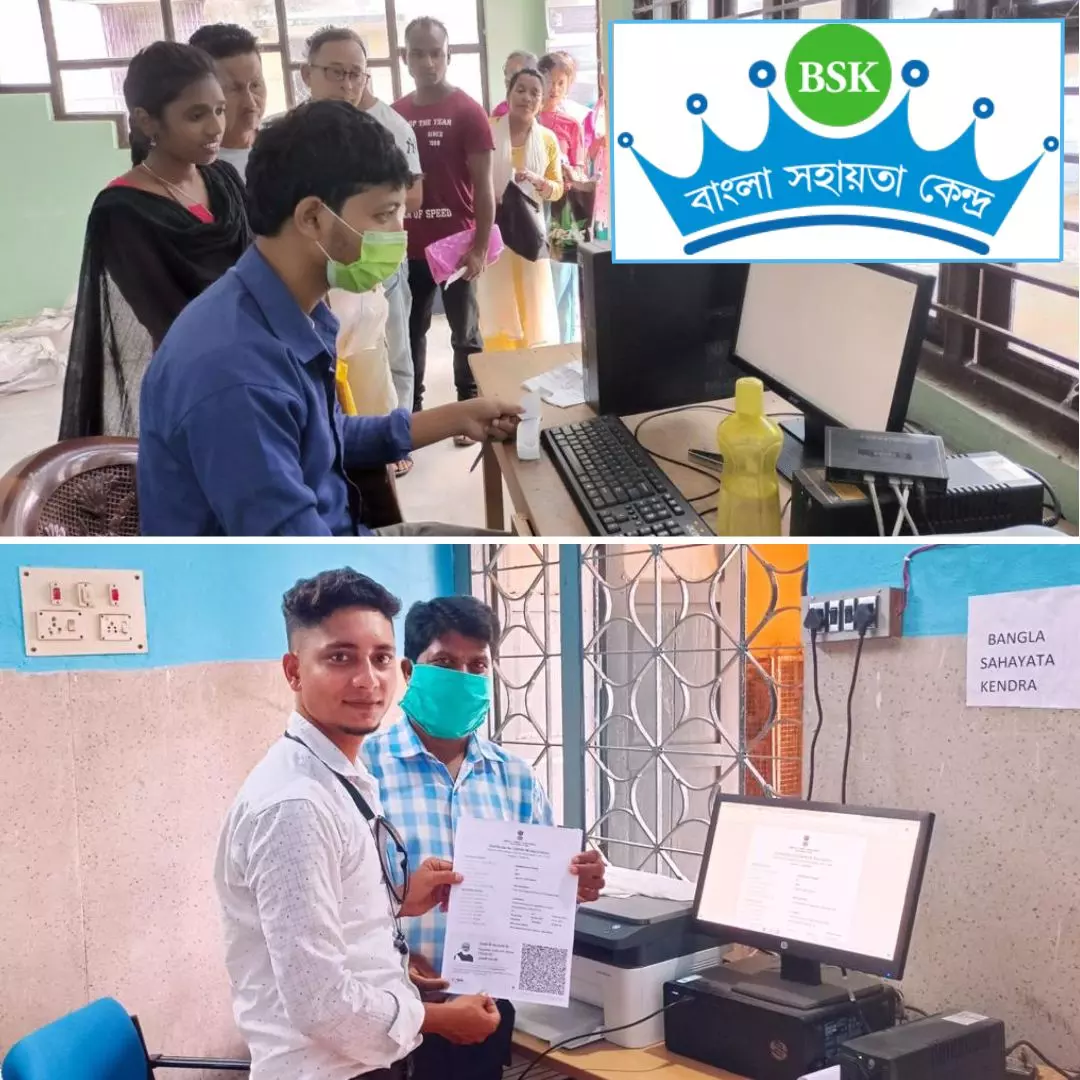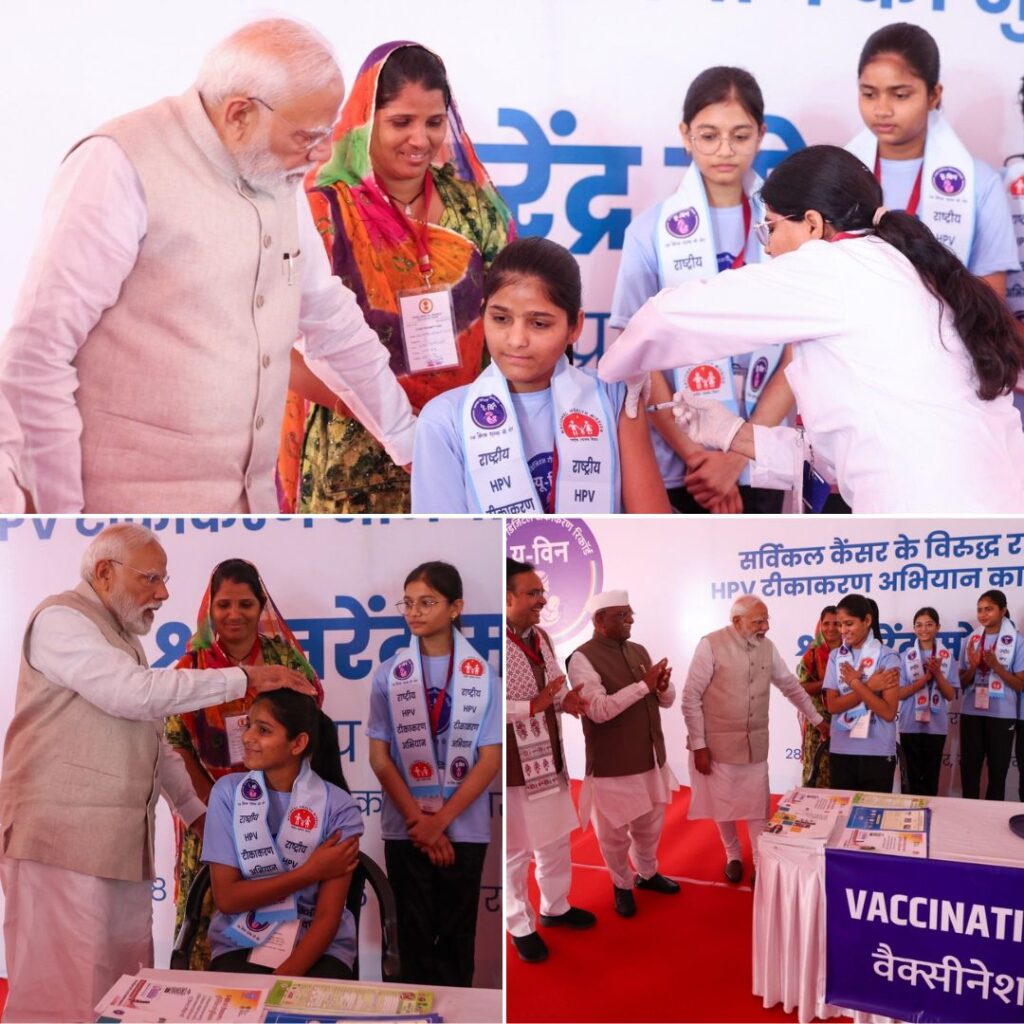Making state agencies citizen-friendly has been the goal of most governments in the country. With the kind of complexity of governmental services, it has always been a challenge to take good governance to remote and rural regions. Transforming this perception is the West Bengal government’s Bangla Sahayata Kendras (BSKs). Inspired by the vision of West Bengal Chief Minister Mamata Banerjee, BSKs were set up as a single-window portal that integrates all governmental services. This way, they effectively bridge the huge digital gap and ensure that the benefits of Bengal’s governance reach even the remotest corners.
What’s even more striking about this novel and free-of-cost initiative is that it is now inspiring and attracting the attention of neighboring countries. On March 13, a technical team from the Bangladesh Government made their way to the BSK offices to understand and learn about the project that has been benefitting crores of people.

Officials from the BSK and technical team of Bangladesh Government during the field visit
Over 4 Crore People Benefitted
Adopting technology to address the diverging needs of the people, BSK has been operating since two and half years with and for the people. The services have grown to become synonymous with the government at the grassroots and have delivered over nine crore services to no less than four crore people. As per an official release shared with The Logical Indian, about 92 per cent of these services delivered had originated from rural areas, and 39 per cent of them were for women.
Currently, 3,561 BSKs are functioning around the gram panchayat levels, and another 1461 additional BSKs are being established in unserved areas that are in high demand for such services. Apart from bringing in more BSKs, the project has also been expanding its services to incorporate more and more governmental benefits for the people. Speaking to The Logical Indian, the Chief Operating Officer of BSK, Saadia Azim, said that it’s a complicated network of processes, but they continue to grow to provide the much-needed relief to the people.
Multiple stakeholders, payment gateways, technical departments of agencies, and much more are involved in the backend of BSKs’ functioning. Whether delivering digitally signed certificates for Ration Cards or even paying electricity bills, BSKs provide an easy one-stop solution for all.

Queue of people gathered at the BSK to avail their services
Gathering First- Hand Experience
After the phenomenal success of the Sahayata Kendra travelled distances, it has given the project a unique position abroad as well. Recently, a four-member technical team of Digital Financial Service and Digital Centre of the Government of Bangladesh visited the Project Management Unit of BSK to gather first-hand experience and exchange views with the citizens.
Speaking about the visit from their neighbouring country, Azim noted that it was a proud and enlightening day for them. Further, Azim commented on how both regions (Bangladesh and Bengal) face similar problems in terms of the digitally unskilled population. Reaching out to these groups of people has been the highest priority in ensuring that nobody is denied the advantages of government schemes and policies. The Bangladesh government’s interest in understanding how their system is bridging the digital divide was a huge statement regarding the country’s efforts toward good governance. Also, Azim shares that the Dhaka team went with promises to work out a pilot project with their government so as work on similar lines like BSK. Further, Azim conveys that the neighbors found the BSKs system more functional and easy to operate
Earlier, the reach of policies was somewhat limited to urban areas where there is a decent amount of access to such services and have a majority of digitally literate crowd. Assisting those who do not have access to such information has been the core of BSKs.The system functions in a way such that it empowers the people to utilise the services made for their benefit. There’s still a long way to go for BSKs in addressing the occasional technical glitches and gateway crashes, but it continues to play a large part in aiding people right from the gram panchayat levels.
Concluding the conversation with the The Logical Indian, Azim says, “There’s massive sharing of data going around and it’s a lot of work in the backend. But at the end of the day, BSK helps ease the time and makes it convenient for many to receive the benefits offered by the government.”
Also Read: Powering Villages Free Of Cost! College Dropout’s Bamboo Hydel Plant Draws Attention Of Govt Body
https://thelogicalindian.com/h-upload/2023/03/16/500x300_230588-untitled-design-13.webp
Good Governance
2023-03-16 12:39:26.0
Here’s How Bangla Sahayata Kendras Helped Over 4 Cr People Get Benefit From Government Initiatives












